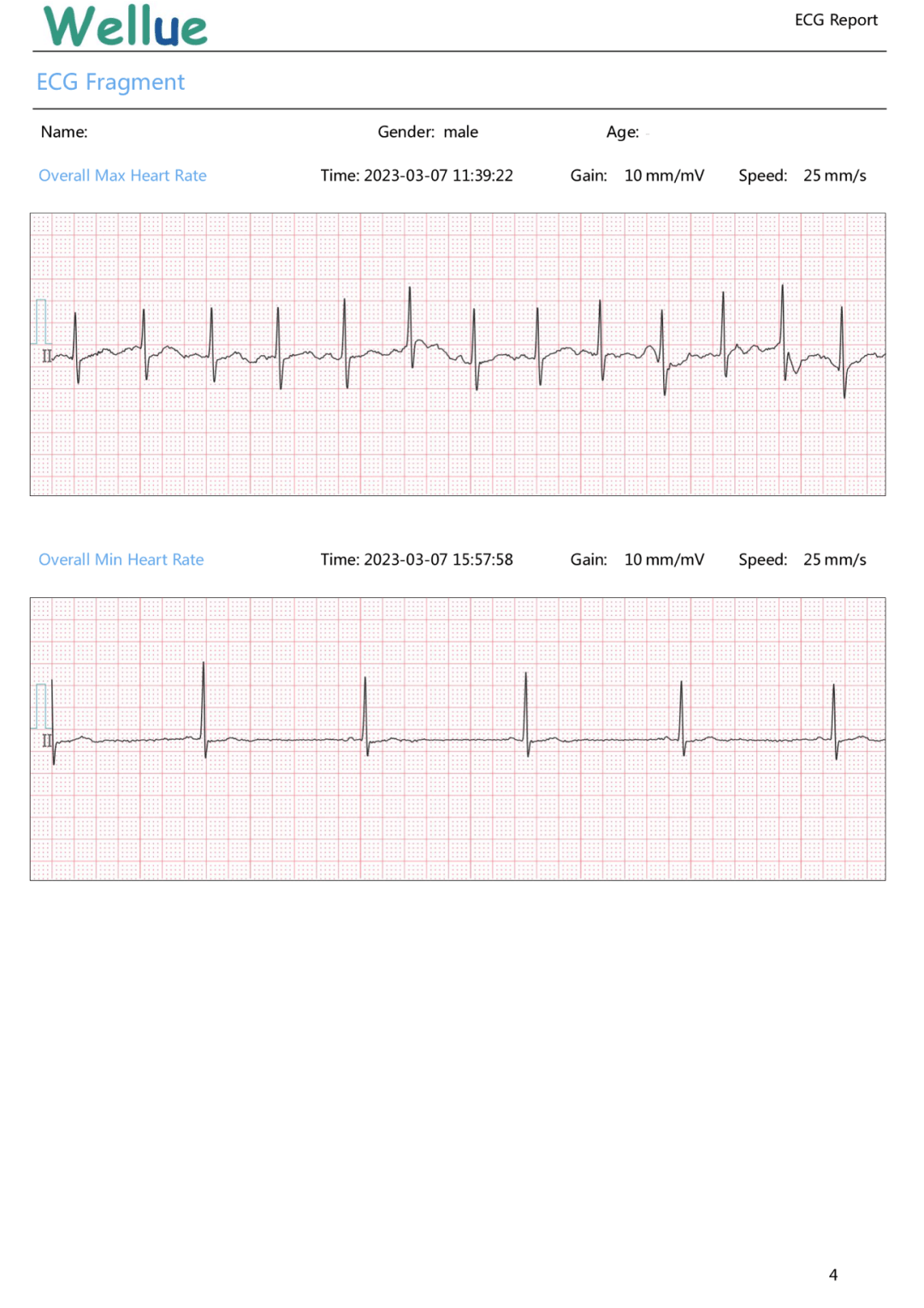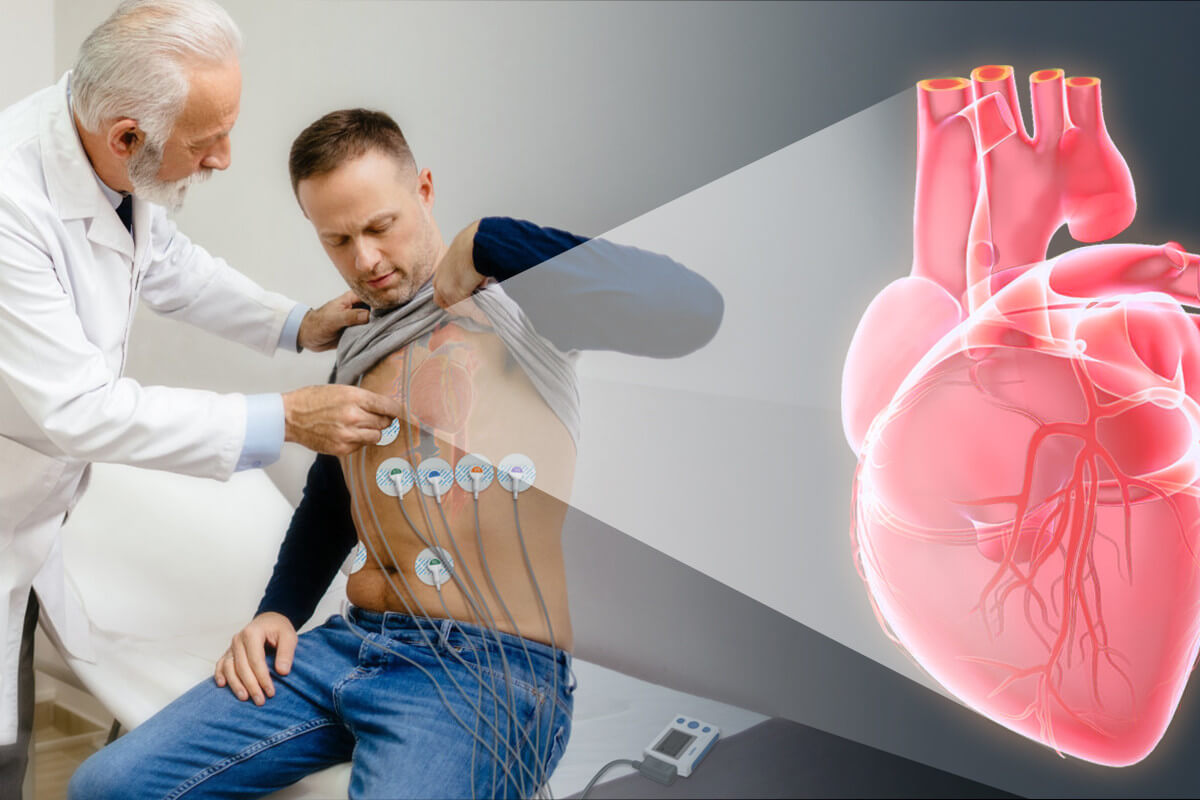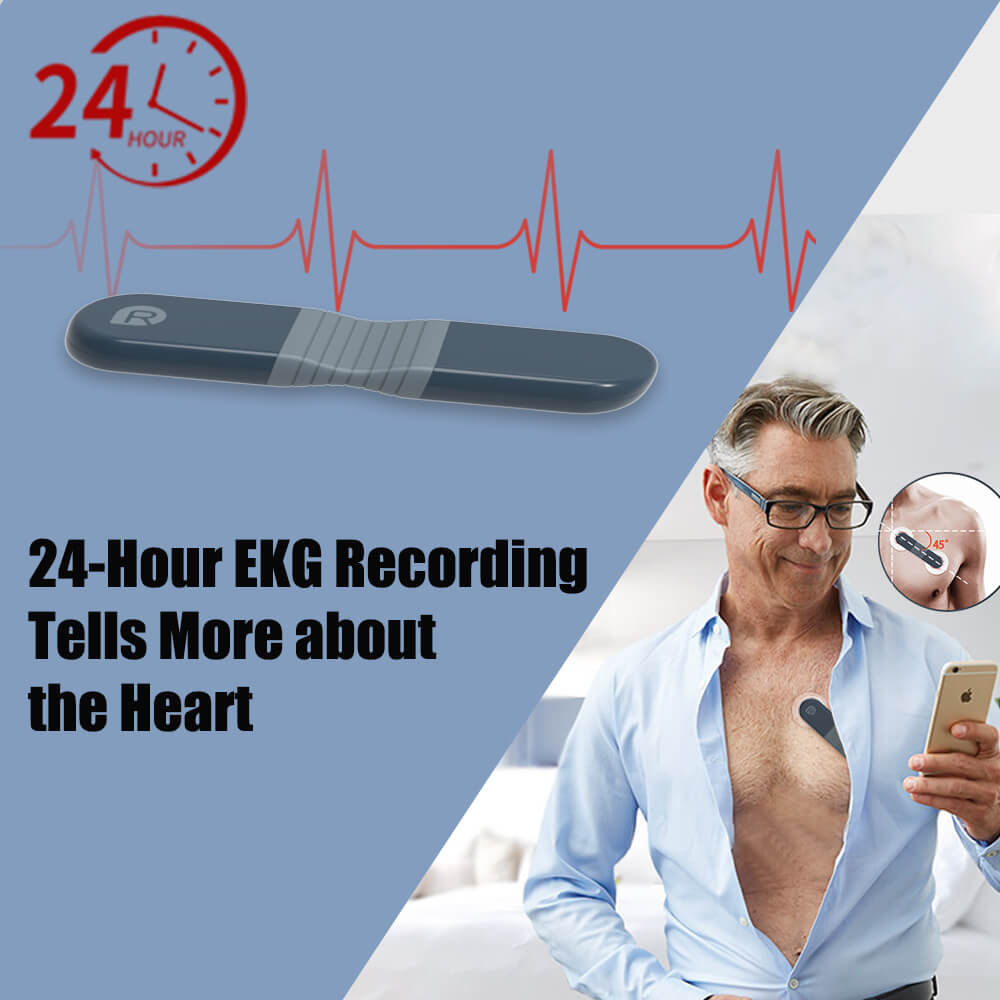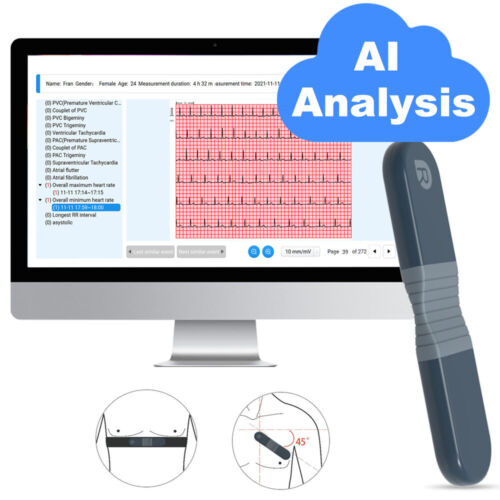
How ECG Monitor Help Prevent Heart diseases?

Heart disease is a leading cause of death worldwide and can also result in long-term disabilities and reduced quality of life for those affected. Many survivors require ongoing medical care and support to manage their condition, which can be expensive and time-consuming. However, efforts are being made to improve heart diseases prevention, care, and management around the world, including public education campaigns, expanded access to healthcare, and the development of new treatments and technologies.
Dr Frederico de Morais Ribeiro, a cardiologist from Brazil, has done a heart health monitor case study on Wellue ECG Monitor to research how it helps people detect irregular heart rhythms, or arrhythmias. By tracking their heart rhythm data over time, individuals may be able to spot patterns or changes that could indicate developing heart problems. Catching these changes early can mean being able to intervene and prevent the worsening of heart disease or other heart-related problems.
A 75-year-old patient with Arterial Hypertension, Dyslipidemia, Diabetes type 2 and recent episode of Transient Ischemic Accident, seeks the cardiologist for diagnostic investigation.
The patient had already undergone ECG, ECodopplercardiogram and Holter 24h all without abnormalities.
We then chose to do a longer Electrocardiographic Monitoring, using the Heart Health Monitor – ECG Recorder Wellue, which has a battery for 72h of monitoring. We used it attached to the thoracic with a strap, as it could be taken out for the bath, making the examination more comfortable.
At the end of 72 hours, we connect the device to the Computer and download all the data to the AI program – ECG Analiysis System, which through Artificial Intelligence quickly suggests a Report and makes available all the traces for conference and if this monitoring has been done by the patient, this data can be shared with your doctor very easily.
Below is the Report model generated by the AI-ECG Analysis System program.
It is a very complete and structured report, easy to understand and that can be shared very easily.
It presents data such as the time monitored, remembering that with each removal of the ECG recorder from the body, the device automatically turns off and reactivates automatically after being reattached to the body, maximum and minimum heart rate, main cardiac arrhythmias found, as well as the number of documented times and time they appeared. It generates a report with the diagnosis found and at the end has the ECG tracing showing the arrhythmias caught.
The program also has the visualization tool of the entire electrocardiographic tracing so that the doctor can check and confirm the findings exposed by the Artificial Intelligence.






Case Discussion:
In this case in question, the electrocardiographic monitoring of this patient by the ECG Recorder was very important, because an arrhythmia called Atrial Flutter was detected, in this case, in its paroxysmal form. It is known that this Arrhythmia has great thromboembolic potential, that is, to form clots inside the heart and these detach and go to the brain, causing Strokes.
With such diagnoses we make the risk stratification of this arrhythmia by means of Risk Scores (CHADSVASC2) and from these data we elaborate the treatment in order to reduce the risk of new Cerebral Vascular Accidents, a disease with a lot of morbidity and mortality.
ECG (electrocardiogram) monitoring is important for the prevention of stroke because many cases of stroke are caused by heart rhythm disturbances, such as Atrial fibrillation/Atrial Flutter.
Atrial fibrillation/Atrial Flutter is a condition in which the atria of the heart do not beat properly, which can lead to the formation of blood clots that can move to the brain and cause a stroke.
ECG monitoring can detect Atrial fibrillation/Atrial Flutter, enabling early treatment and prevention of stroke. In addition, continuous ECG monitoring can help identify other heart rhythm disorders that may also contribute to stroke risk.
It’s important to remember that stroke prevention involves many factors, including healthy lifestyle habits, controlling blood pressure, cholesterol, and blood sugar, as well as treating underlying medical conditions. ECG monitoring is just one of the tools available to help prevent stroke and should be used in conjunction with other preventive measures.

Dr Frederico de Morais Ribeiro
A cardiologist from Brazil
- Graduated in Medicine at UFG (Federal University of Goiás)
- Residency in Internal Medicine from UNICAMP (State University of Campinas)
- Residency in Cardiology at the Heart Institute of the Hospital das Clínicas of the University of São Paulo – InCor- HCFMUSP
- Specialist in Cardiology at the Brazilian Society of Cardiology – SBC/AMB











